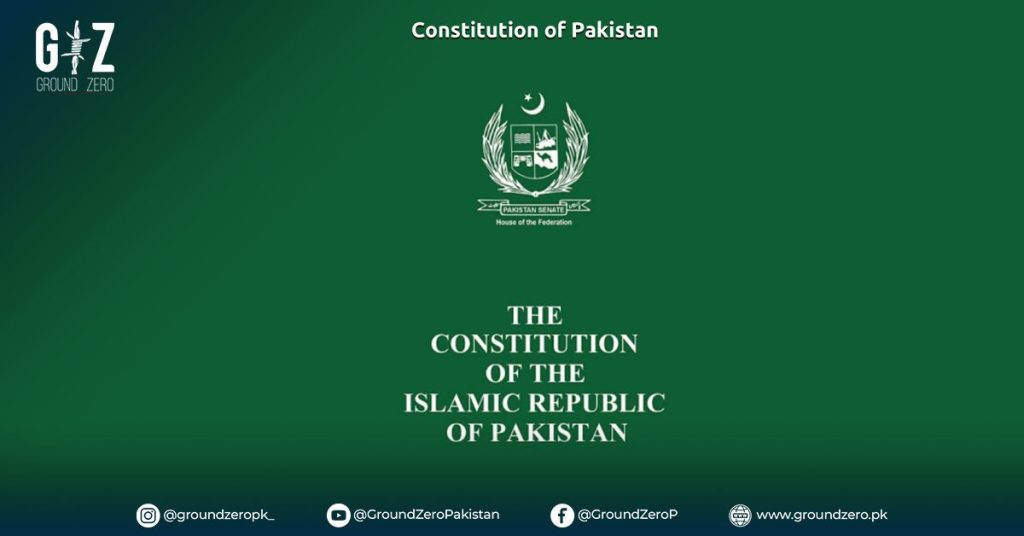Article 63-A in Pakistan: A Deep Dive into Historical Applications, Controversies, and the Supreme Court Review
Article 63-A of Pakistan’s Constitution addresses the disqualification of lawmakers on the grounds of defection. This article has been a focal point of debate, with the Supreme Court of Pakistan revisiting its 2022 verdict. The current five-member bench, led by Chief Justice Qazi Faez Isa, is reviewing whether the votes of dissident lawmakers should be counted. This review has sparked new conversations about the role of defections in Pakistani politics and the implications of this article on party discipline.
What Is Article 63-A?
Article 63-A aims to prevent lawmakers from defecting, or voting against their party, during critical votes. It applies to:
•The election of the prime minister or chief minister.
•Votes of confidence or no-confidence motions.
•Money bills or constitutional amendments.
A party leader submits a declaration of defection to the Speaker if a lawmaker votes against party lines. Once forwarded to the Chief Election Commissioner (CEC), the CEC confirms the defection within 30 days, resulting in the lawmaker’s disqualification and their seat being vacated.
Historical Applications of Article 63-A
Article 63-A has been invoked on several occasions in Pakistan’s political history, most notably during times of political instability when lawmakers shifted allegiances. One such example is the 2018 Senate elections, where accusations of defections surfaced within the Pakistan Tehreek-e-Insaf (PTI) and other political parties. Several members were alleged to have voted against party directions, sparking internal inquiries and demands for their disqualification.
Another significant case was during the 2011 vote of no-confidence against Prime Minister Yousaf Raza Gillani. In that instance, defectors within his own party were targeted under Article 63-A, though political maneuvering allowed him to survive the vote.
More recently, the 2022 vote of no-confidence against Prime Minister Imran Khan also brought Article 63-A into the spotlight. Several PTI lawmakers were accused of defecting and voting in favor of Khan’s ouster, which triggered legal actions based on the article.
Concerns About Article 63-A and the 2022 Supreme Court Ruling
The May 2022 Supreme Court ruling on Article 63-A introduced a key controversy: the court barred dissident members from having their votes counted. In a 3-2 verdict, the majority ruled that lawmakers who defected could not have their votes counted, even in critical matters like no-confidence motions. This ruling was seen as a move to curb defections, but it raised concerns about democratic representation and whether the ruling overstepped constitutional boundaries.
•Critics’ Concerns: Opponents argue that not counting dissident votes undermines the concept of individual autonomy and dilutes parliamentary representation. According to the Supreme Court Bar Association (SCBA), the Constitution allows for the disqualification of defectors, but their votes should still be counted as valid. This raises the question of whether the court’s ruling interferes with parliamentary processes.
•Supporters’ View: On the other hand, proponents believe that the ruling strengthens political parties and prevents the instability caused by defections. They argue that without such measures, party discipline and democratic governance would be weakened, as lawmakers could frequently switch sides without facing repercussions.
For updates on political reforms and constitutional changes, visit our legal section.
Will Dissident Lawmakers’ Votes Finally Count?
The ongoing review by the Supreme Court has rekindled the debate on whether Article 63-A should be interpreted to allow dissident lawmakers’ votes to be counted. The new bench includes judges who dissented from the 2022 ruling, making it possible that the previous interpretation may be overturned. The SCBA’s plea centers around the argument that while lawmakers can be disqualified for defection, their votes should still be counted, as per constitutional rights.
This ruling will have far-reaching consequences, not just for party discipline but also for parliamentary democracy in Pakistan. Should the court uphold its previous ruling, political parties will continue to wield greater control over their members. However, if the ruling is overturned, it could set a precedent for a more liberal interpretation of parliamentary voting rights, offering more autonomy to lawmakers.
For further analysis on this legal battle, read the full Supreme Court review.


